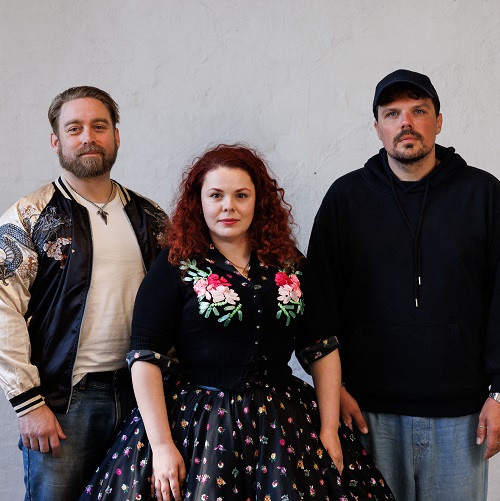
Four innovative space startups from across the country and the world have landed in South Australia's space ecosystem to join the pre-eminent commercial space accelerator program, Venture Catalyst Space.
They join the ranks of 36 startups the program has supported since 2018, and will build on a collective $31 million raised in additional declared investment and grants, as well as more than 220 space jobs created.
The program is delivered by the University of South Australia's Innovation & Collaboration Centre (ICC) and supported by South Australian Government funding through the South Australian Space Industry Centre.
UniSA Deputy Director: Business Incubation, Craig Jones says this year's cohort of space startups represents a strong diversity of innovations that promise to disrupt and grow the sector.
"Year on year, the program attracts talent that breaks the mould and reinforces South Australia's acumen for supporting cutting-edge commercial space ventures," Jones says.
"We're talking out-of-the-box concepts like exploring mobile insulin production in space to address the health impacts of microgravity on astronauts and next-generation fuel tanks for spacecraft made from carbon fibre reinforced plastic-concepts that have potential to move space innovation into new realms while having real-world impact here on earth.
"It's a privilege to get behind these founders and watch as their early-stage concepts transform into viable commercial businesses."
This year's cohort includes local and interstate talent as well as international companies from India and Japan.
Minister for Defence and Space Industries Stephen Mullighan says the Venture Catalyst Space program cultivates a steady influx of innovative space startups, contributing to continued growth in the state's space economy.
"One of South Australia's key priorities is to ensure a pipeline of startup and scaleup space companies with strong investment potential," Minister Mulligan says.
"The Venture Catalyst Space program is generating genuine economic benefits for South Australia, helping realise the state's potential as a space innovation and technology incubation destination.
"The program's 2024 participants are an exceptional example of the talent being cultivated in this state to drive innovation, build capacity and grow investment in the space sector."
Selected for the 2024 program, Adelaide-based startup KC Research and Solutions founder Tiffanwy Klippel-Cooper says the company's long-term vision of enabling mobile insulin production in space is a bold ambition.
'Designing systems for space is the ultimate creative challenge; if your design can work in that environment, it can work anywhere," says Klippel-Cooper.
'Innovation is like mountaineering; you can't see the end, and you feel like you're getting nowhere, but the view when you reach the top gives it meaning.''
In May, UniSA's ICC and Australian Centre for Business Growth (AUCBG) launched a fully funded Growth Ramp space scaleup pathway, supported by South Australian Government funding. The six-month program supports space companies with between five-11 employees who are ready to scale.
Venture Catalyst Space launched in 2018 to support the growth of South Australia's space industry by providing early-stage technology-based space startups with the skills required to create a globally scalable enterprise.
2024 Venture Catalyst Space cohort
KC Research & Solutions Adelaide, Australia. |
A desktop mobile insulin farm to streamline production and storage of insulin at point of need, including space. This reduces cost, timeframes and transport needs of traditional insulin production. Insulin may help address the health impacts of microgravity on astronauts. |
RapidBeam Victoria, Australia |
A rapidly scalable network of satellite communications terminals to unlock the full commercial capabilities of satellites, allowing huge amounts of data to be captured and delivered to the ground. |
Zharfire Tokyo, Japan |
Leveraging satellite imagery to detect wildfires by processing public satellite data using an open-source data stack, delivering analysis and actionable insights for firefighting with potential to extend into deforestation and carbon credits. |
Onnes Cryogenics Hyderabad, India |
Next-generation fuel tanks for spacecraft and launch vehicles made from carbon fibre reinforced plastic that is lighter and thinner than existing metallic tanks without compromising strength, also enabling mid-space satellite refuelling. |
The six-month Venture Catalyst Space accelerator program started this week and will include a four-week induction featuring workshops from leading industry experts. Find out more about the program at icc.unisa.edu.au/space
The 2024 Growth Ramp space scaleup pathway commenced on 7 May 2024. Learn more about this program via the AUCBG website.






